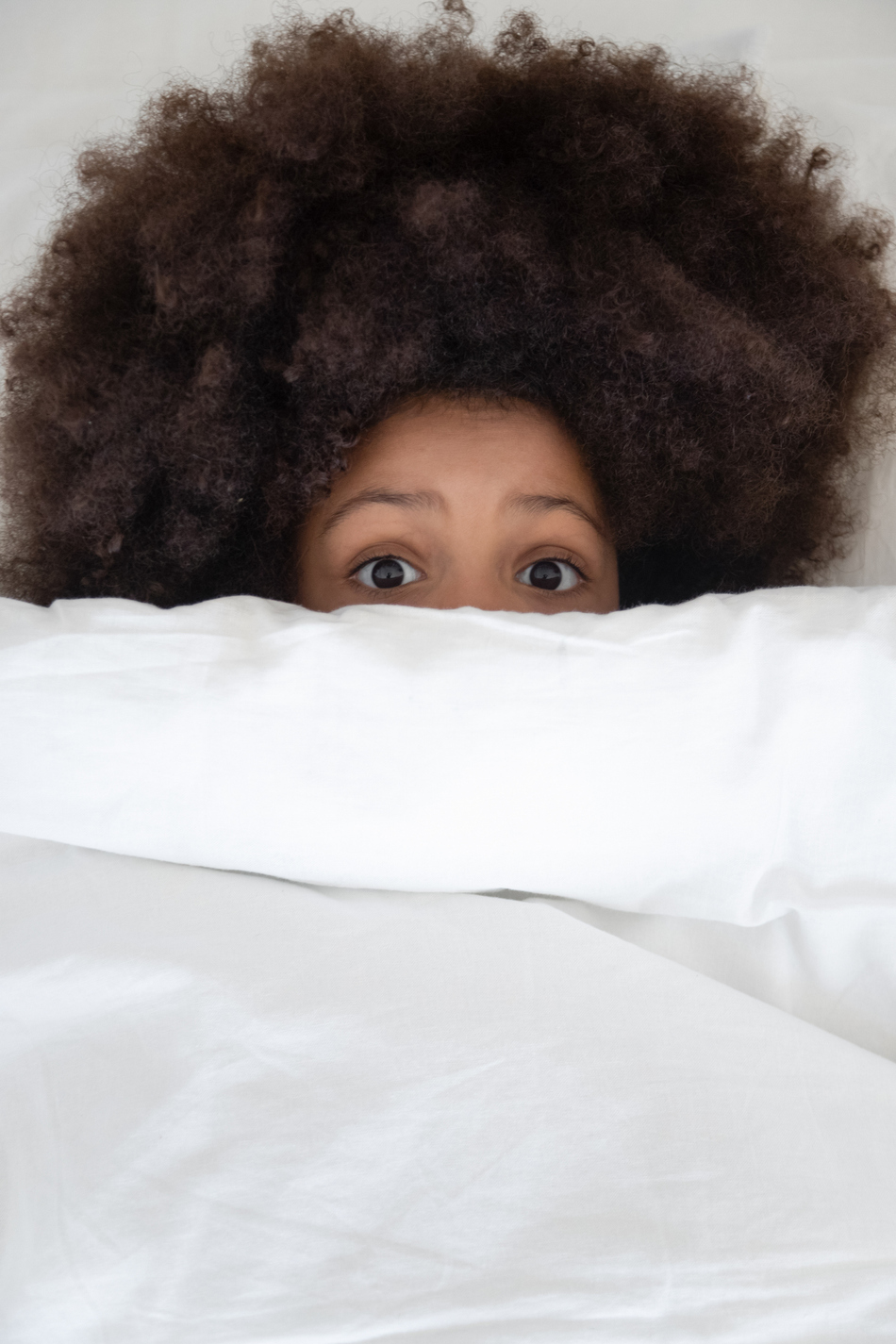
The buzz around CBD oil (and its various offshoots: CBD gummies, CBD-infused lotion and even CBD tea) and its anxiety-reducing qualities have long been doing the rounds – but is CBD oil also good for sleep? If you’re asking team Cosmopolitan, the answer is a solid ‘yes’ on that front.
For me, prior to trying CBD oil, a typical night would go something like this: I’d lie still in the dark, feeling as though something was rushing towards me, a dense unidentifiable mass – huge and heavy – aiming for my head. I’d move away just in time, jolting myself awake. This happened three or four nights a week; just an hour or so after falling asleep, my heart would thump so loud I could feel it in my eardrums and I’d be awake again. Shaking, feeling the adrenaline moving around my legs.
I was diagnosed with Complex Post-Traumatic Stress Disorder at the age of 20, having first (unknowingly) shown symptoms at seven. After a failed counselling attempt, an allergic reaction to an SSRI and, finally, successfully undertaking months of EMDR therapy privately, I felt I had ‘overcome my traumas’. That was, until in the early hours of an unexpected Monday morning, when my sleep was abruptly broken by the sheer panic of feeling like heavy objects were falling on my head.
After speaking with a GP I learned that I had a diagnosable sleep condition commonly caused by trauma and anxiety. ‘Hypnopompic hallucinations‘ are a multi-sensory experience that can happen just as you’re waking up, in those moments when you’re neither asleep nor awake. And the only way it would stop, my GP explained, was if I truly ‘dealt with my anxiety’ – especially that which had begun spiking around bedtime.
After a lot of relentless Googling, I came across a vast number of videos, forum entries and social media posts about how CBD products were helping people to not only sleep, but also relieve symptoms of anxiety and even soothe physical ailments. It was also something I’d heard chatter about in the office, with a fellow Cosmopolitan staffer swearing by CBD oil in moments on panic and CBD gummies at night. I was growing more and more tired (literally) of my sleep situation and the underlying anxiety I’d become accustomed to, and felt anything was worth a try.
So, I quizzed an expert on how CBD can be used to induce restful sleep – and put it to the test myself…
Does CBD oil help with sleep?
I took my first dose of CBD oil – via a pipette, dispensing a few drops under my tongue – on a Saturday afternoon and quickly, I felt the positive impact it had. From the Sunday, I slept soundly every single night for the following two months. Honestly, it was that quick – and it went on for eight glorious weeks. Uninterrupted, panic-free, blissful sleep. I felt better in every way.
Unfortunately, after those two months my former sleep terrors began creeping back in, once or twice a week, and I was truly devastated. Crushed, in fact. It had been working – what happened? So, I safely (with research and guidance) increased my CBD dose and once again, I was away.
But it wasn’t just my sleep that benefited from my CBD endeavours either. My thoughts weren’t as chaotic; I felt that I could carefully sift through them, categorise them and act on them. I had clarity, I could focus and it felt as if every process in my body was working better. My digestion, my sex life, my emotional agility, plus sleep, all tied in and were working in harmony for the first time in forever.
I felt and became more pleasant, more patient and more consistently stable. PTSD provides peaks and troughs; CBD oil provided stability.
From an expert: How does CBD oil work?
Bea Lyus, Registered Nutritional Therapist, College of Naturopathic Medicine, and Resident CBD Expert at Cannabotech UK, says, “We know very well that anxiety and stress contribute to sleep problems such as insomnia and that CBD can effectively reduce anxiety and stress, therefore aiding a better quality of sleep. However, it’s important to note that a low dosage of CBD may actually cause alertness, whereas a higher dosage will help you to feel drowsy and sleepy.”
Essentially, CBD works by activating our serotonin receptors, which in turn calm the mind and any anxious feelings. “Serotonin is a neurotransmitter found in the brain and the gut which is responsible for managing our hormones and thus our mood changes,” adds Lyus.
The expert continues to explain that research has shown CBD works effectively to target the Endocannabinoid system (ECS) – the body’s network system. “The Endocannabinoid system is like a computer software which sends signals to the brain, nervous system, immune cells, organs. It acts like a main control of restoring balance in all biological functions, from sleep to appetite, memory, mood, immune system, pain control, energy, reproduction and cell replication.” Pretty powerful stuff, huh?
What is CBD oil?
CBD oil stands for ‘cannabidiol’ and is not the same as marijuana, although it is extracted from the cannabis plant – something that’s a common misconception about this herbal hero. The two main active ingredients in cannabis are CBD and THC; CBD has a calming impact and is not psychoactive (meaning it does not change the state of mind), whereas THC is, and is responsible for the anxiety and paranoia commonly associated with marijuana use.
Is it legal to use CBD for sleep in the UK?
Yes, as long as it contains less than 0.2{d589daddaa72454dba3eae1d85571f5c49413c31a8b21559e51d970df050cb0e} THC, CBD oil is often sold as a food supplement or herbal medicine in the UK. “The UK is the first country in the world to regulate CBD for oral consumption, with the Food Standards Agency’s public list of cannabinoid (CBD) products permitted for consumer sale,” says Lyus. “Only the CBD products featured on the list have been given the green light by the FSA to stay on the market, in line with the UK’s Novel Food requirements, and any products not included must be removed from shelves.”
The bottom line? Be sure to do your research when choosing a CBD product, but as long as you’re shopping from a reputable retailer, such as Boots or Holland & Barrett, you’ll be fine.
Does CBD oil get you high?
No, that’s the THC talking. According to Lyus: “There are over 100 different types of cannabinoids and it’s important to differentiate between CBD and THC. CBD (or ‘cannabidiol’) is the most known for its health supporting benefits.
“The other compound is THC (or ‘tetrahydrocannabinol’), which is a controlled substance and is illegal in most countries worldwide. There are 3 different kinds of CBDs which are commonly available on the market including: full-spectrum, broad-spectrum and CBD isolate.”
She adds that CBD isolate only contains CBD and no other cannabinoids, and absolutely zero THC. “With isolate, you can guarantee the amount of CBD per crop; it is pure and odourless plus there is no potential allergic reaction to other ingredients found in the hemp plant. This is backed up by a very recent study in the Lancet Psychiatry.”
To conclude: no, CBD oil will not get you high. “If you use a CBD with THC within the legal limit, it will not get you high,” Lyus confirms. “Better still, if you use broad-spectrum or CBD isolate, it will never make you high as they contain zero per cent THC.”
How long does CBD oil take to work for sleep?
Of course every brain and body works and reacts differently, but I noticed the anxiety-reducing effects of CBD within around half an hour. Longer-term benefits became more clear for me after around two weeks, and I stopped taking any CBD oil for my sleep after about six months. I simply didn’t need it anymore.
Bea says: “We are all different individuals, so it may take longer for some people than others. Anecdotal evidence suggests it can take up to 15 minutes when using an oil, drop, tincture or mouth spray. Though, tablets and creams can take longer.”
Under periods of stress, I still experience the occasional sleep disturbance – but it’s nothing like the nightly battle I was having before I found the benefits that CBD oil can have for sleep.
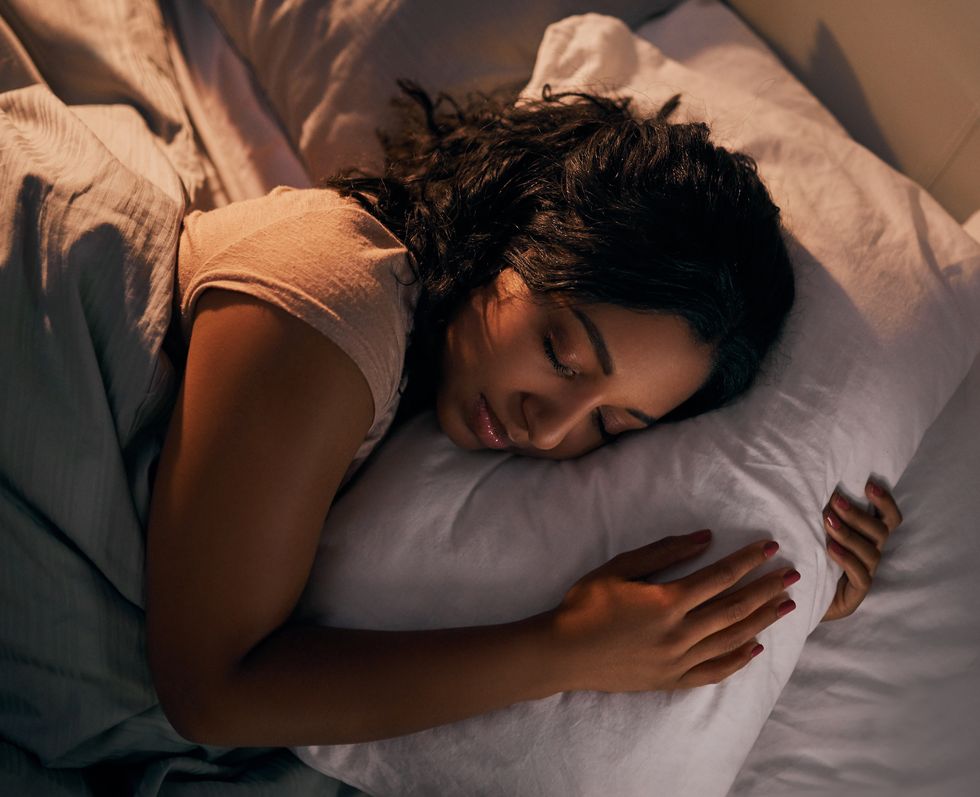
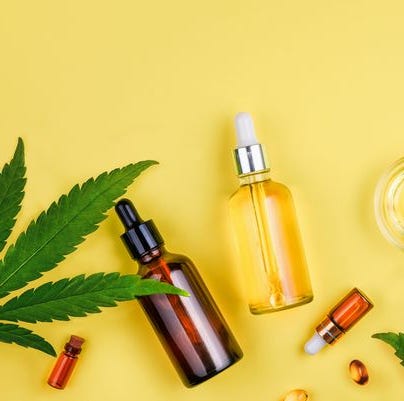
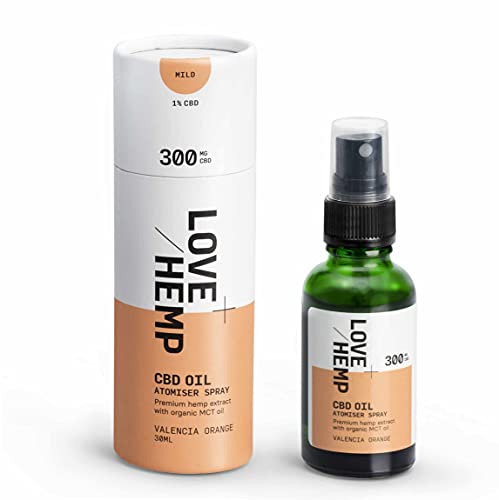
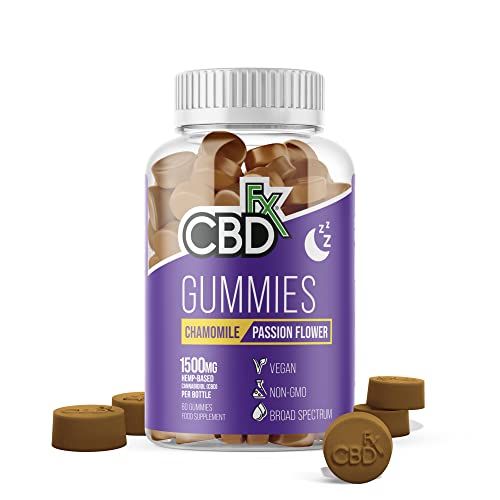
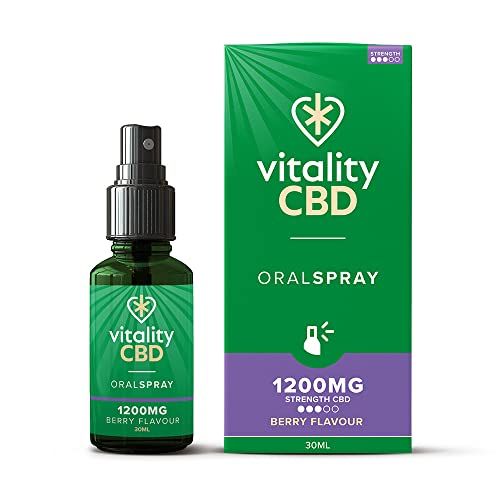
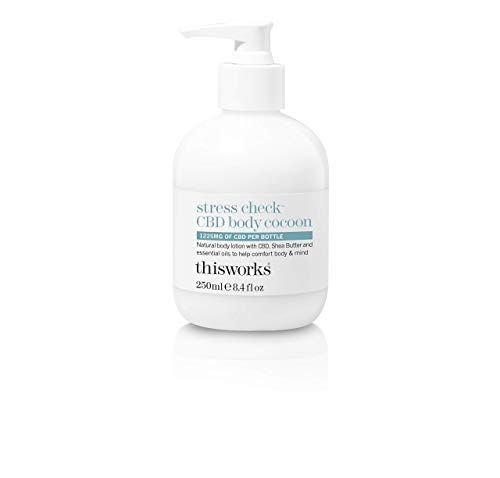
:max_bytes(150000):strip_icc()/cbd-3-2000-15e0c8a9a66b4451b8a6b8a523419d2e.jpg)


